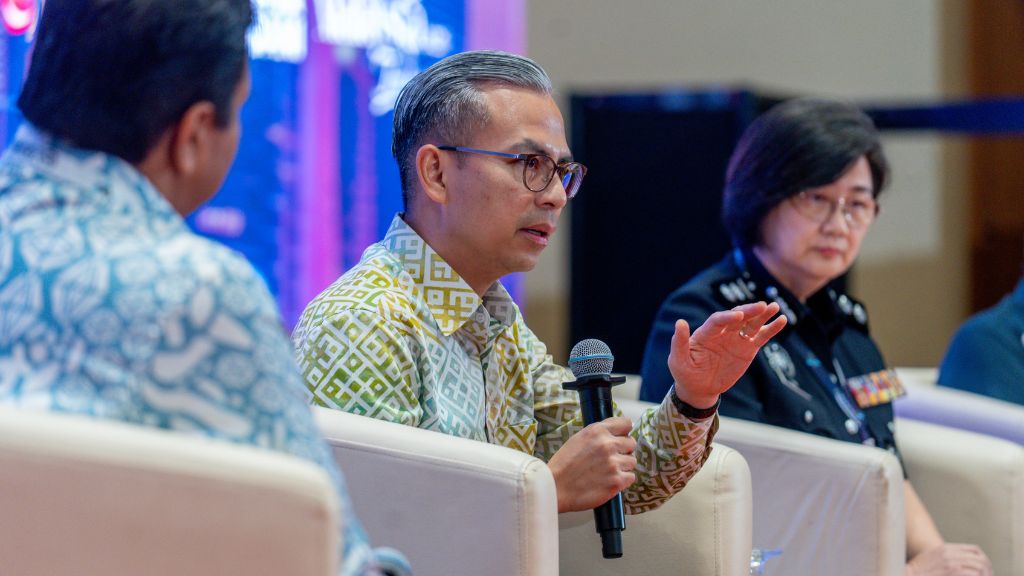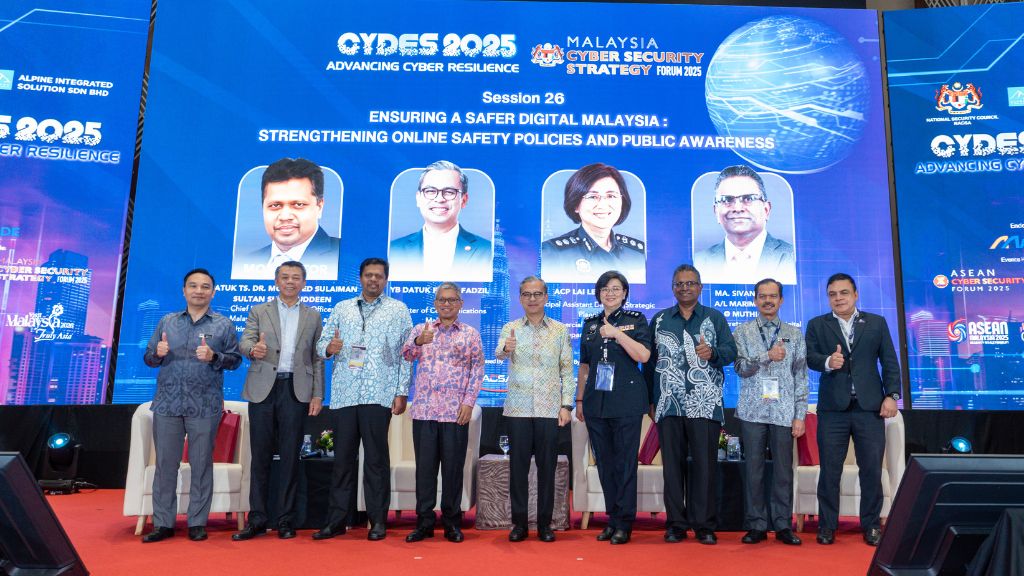Malaysia shares steps being taken to strengthen online safety
By Mochamad Azhar
Speaking at the CYDES 2025 conference, Malaysia's Communications Minister Fahmi Fadzil said achieving a digitally secure nation required a strong national vision, cross-agency collaboration, and the active participation of every citizen.

Malaysian Communications Minister, YB Datuk Fahmi Fadzil, was speaking about how to ensure online safety in Malaysia at recent CYDES event. Image: CYDES
At the Cyber Defence and Security Exhibition and Conference (CYDES) 2025, Malaysian public sector leaders and law enforcement officials addressed the challenges of online fraud, disinformation, and harmful content that are impacting Malaysia's digital ecosystem.
Malaysian Communications Minister, YB Datuk Fahmi Fadzil, said the pandemic has shifted various societal activities to the digital realm.
Activities that were once dominated by newspapers and conventional phone calls and physical stores have now shifted to WhatsApp, TikTok, and online shopping platforms.
While common people have adapted to online platforms, so have the criminals, he noted.
“Having policies that understand this shift, understand where loopholes may arise, address legislative challenges and break down administrative silos is very important,” he said.
According to Fahmi, achieving a digitally secure Malaysia requires a strong national vision, cross-agency collaboration, legislative agility, technology and, most importantly, the active participation of every citizen.
“This threat is too big to be handled by one agency alone,” he added.
Fahmi was speaking at the Strengthening Online Safety Policies and Public Awareness panel on July 3, the final day of the three-day CYDES 2025 event held in Putrajaya.
Other panellists were Malaysia's Commercial Crime Investigation Department (CCID) Assistant Director, ACP Lai Lee Ching and Malaysian Ministry of Digital’s Deputy Secretary General (Digital Development), YBrs. Sivanesan Marimuthu.
The panel was moderated by Malaysian Communications and Multimedia Commission’s Chief Network Security Officer, Datuk Ts. Dr. Mohamed Sulaiman Sultan Suhaibuddeen.
To subscribe to the GovInsider bulletin, click here.
The human element is the most important
CCID’s ACP Lai highlighted the destructive impact of the surge in online fraud cases in Malaysia, where his agency recorded over 55,000 reports with total losses amounting to RM1.2 billion (S$362 million) over a six-month period.
This does not include the social impact arising from broken families, lost retirement savings, and children exposed to the dark side of the internet, she added.
Lai emphasised that the human element was the key in combating fraud.
“We see all this happening, but to date we still see the same pattern and more people are falling victim.
“So, if you ask me whether Malaysia is truly prepared and aware of this? I would say 50-50, because the choice was in your hands,” said ACP Lai.
She stressed that awareness must be sustained because human memory was limited, while scammers continued to innovate, leveraging artificial intelligence (AI), deepfakes, and cross-border syndicates.

Minister Fahmi added that the government has done its utmost to implement reforms, including amendments to the Criminal Code, the Communications and Multimedia Act, and the introduction of the Online Security Act, which expands the definition to close legal loopholes often exploited by scammers.
At the operational level, the National Scam Response Centre (NSRC) now coordinates multi-agency efforts to recover victims' funds and swiftly block fraudulent transactions.
However, he acknowledged that the process and implementation of these policies were not always linear with what was expected.
“Sometimes we take one step forward and two steps back, but the shared concern over online dangers drives us to continue working together,” he said.
Integrating security-by-design
Sivanesan from the Ministry of Digital said that with the rapid growth of digital infrastructure and the expansion of AI, 5G, and IoT, online security must be embedded in the design stage, not as an add-on after everything is up and running.
Malaysia has launched initiatives such as the AI Action Plan 2026-2030 and has been developing a regulatory framework for AI governance, which will help the country overcome challenges in the use of negative AI.
However, challenges remain, particularly regarding identity verification and account authenticity.
“The fact that 70-80 per cent of online accounts are likely fake or bots highlights the need for stricter platform verification,” he said.
The proliferation of fake accounts fuels misinformation, fraud, and online harassment, necessitating closer collaboration between agencies and with major platforms to identify malicious activities while protecting digital freedom.
“We must always stay one step ahead of scammers, using the right technology and regulations, and building a culture of online accountability,” Sivanesan added.
At the end of the session, the panellists emphasised the importance of protecting vulnerable groups, particularly children and the elderly in the digital environment.
Data from the Ministry of Communications showed that over 100,000 Malaysian children aged 12-17 have been exposed to sexual content, and 16 per cent of online fraud victims are senior citizens.
The role of society, especially parents, and non-governmental organisations was important in building awareness and encouraging responsible internet behaviour.
Children and the elderly should also be taught to recognise suspicious messages and avoid unclear links.
Advocating online safety initiative for ASEAN
During a question-and-answer session with journalists after the panel, Minister Fahmi emphasised the importance of collective efforts by ASEAN to create a safe and responsible digital space.
“Online safety is not an issue faced by just one country. Those who create harmful content and spread misinformation, disinformation and fake news operate across borders, and the impact of their actions has harmed many countries.”
As Chair of ASEAN 2025, Malaysia has taken further steps in its advocacy by leading the Kuala Lumpur Declaration on the Safe and Responsible Use of Social Media Platforms for ASEAN.
The Declaration was approved at the 17th ASEAN Ministerial Conference and will be officially adopted at the upcoming ASEAN Summit in October.
Through this initiative, Malaysia does not intend to establish a framework that restricts member countries in developing their digital capabilities.
Rather, it emphasises the principles of mutual respect and understanding between one country and another.
“This cooperation will enable us to learn best practices from one another,” he concluded.